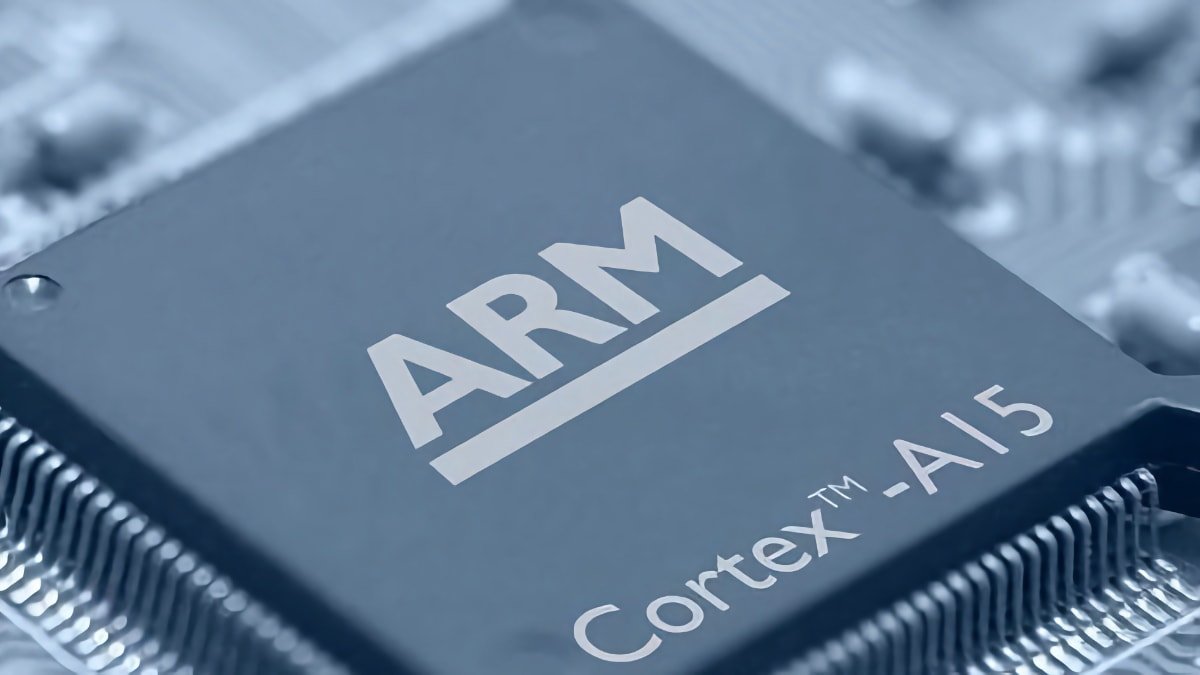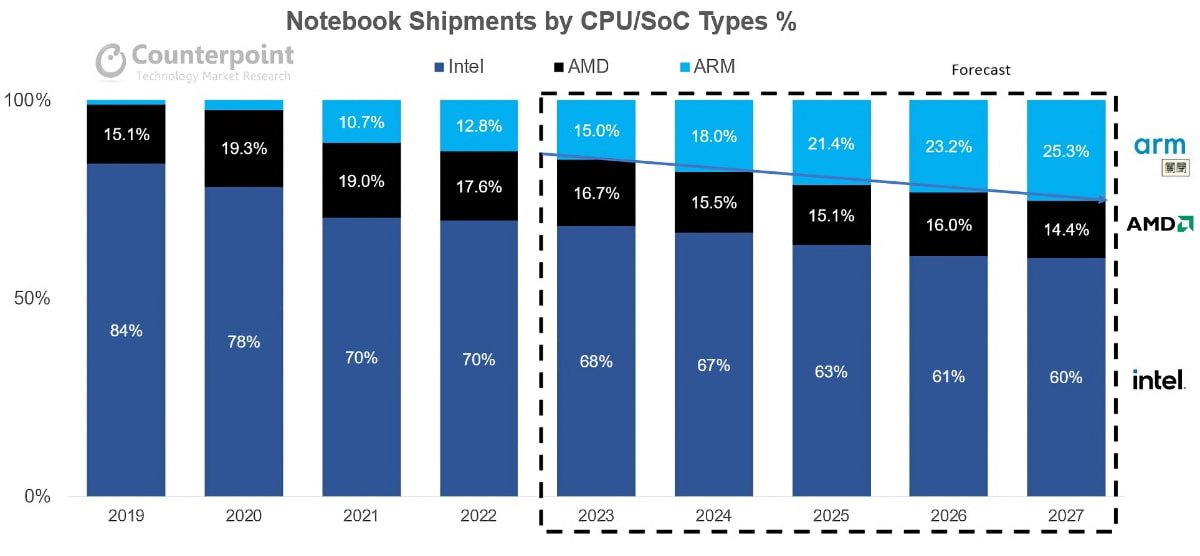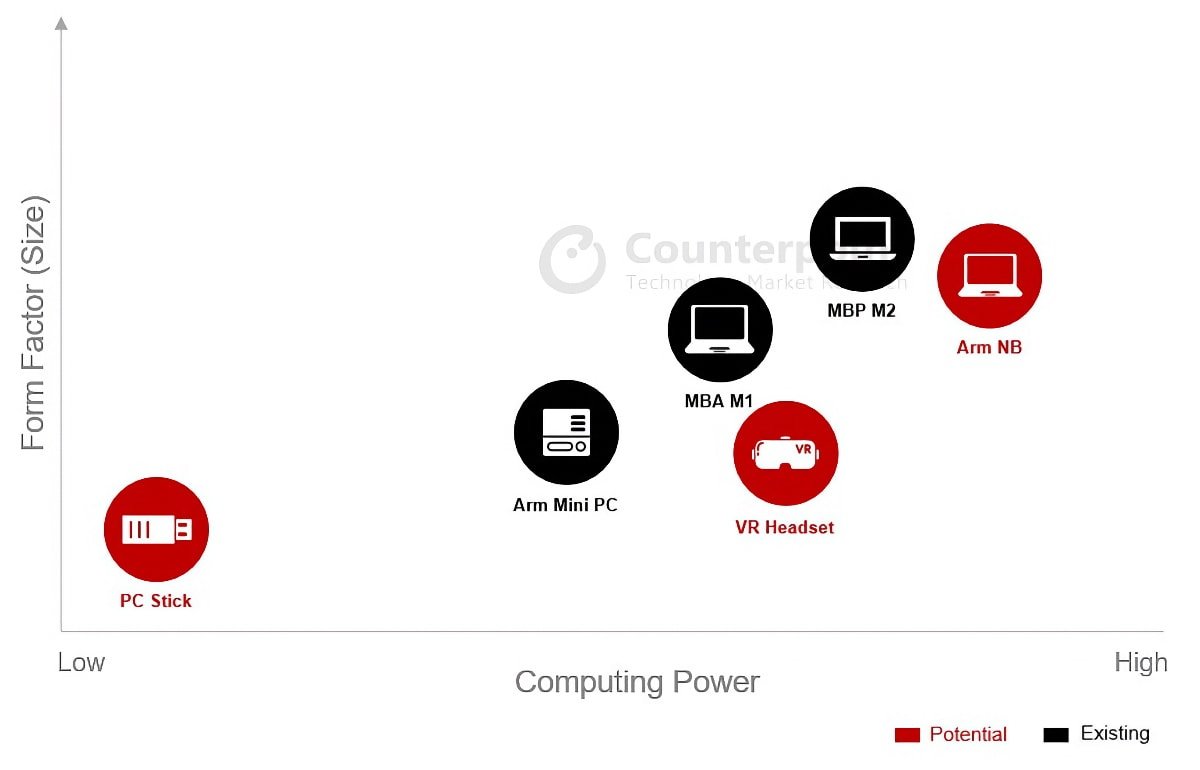Apple has 90% of the market share for ARM computers thanks to Apple Silicon, and analysts expect the ARM computer market to double.
The newest report from Counterpoint Research expects ARM-based PCs to double in market share by 2027. They hold a 14% market share, and analysts believe it will increase to 25%.
Apple's M-series of chips are primarily based on chip architecture from ARM, which has helped the company gain 90% of the ARM-based notebook computer market. But if companies using ARM chips want to help grow the market, they must address factors like Windows and Office365 support and ensure that native apps are speedy.
Unlike the x86 chip architecture from Intel, designed to be general-purpose processors, ARM-based system-on-a-chips (SoC) are highly customizable. Companies can design these processors as Apple has to include more high-performance CPU cores and integrated memory to compete with x86 CPUs.
The custom cores allow advanced features such as artificial intelligence and machine learning tasks, such as Apple's Neural Engine it includes in its processors. ARM chips can also be more efficient for power and customized to meet specific power requirements.
Integrating GPUs into the chips also improves performance by accelerating computational tasks such as machine learning and image recognition. As a result, it allows for faster and more accurate results in computing and makes it possible to run advanced apps and software on ARM-based computers.
Companies can also tailor ARM chips for virtual reality headsets, which are currently based on smartphone processors. ARM chips can help the headsets reach PC-like performance to handle complex applications for virtual reality.
For example, rumors of the VR headset from Apple suggest it could have custom Apple chips included, especially if the company intends the headset to be a standalone device that doesn't rely on an iPhone. One report said it would have processing comparable to the M1 chip, although the M2 chip might also be an option.
 Andrew Orr
Andrew Orr



-m.jpg)






 Marko Zivkovic
Marko Zivkovic
 Mike Wuerthele
Mike Wuerthele
 Christine McKee
Christine McKee
 Amber Neely
Amber Neely
 Wesley Hilliard
Wesley Hilliard

 William Gallagher
William Gallagher










9 Comments
"Apple's M-series of chips are primarily based on chip architecture from ARM" - is there any basis for this claim? Apple has an architecture license from ARM and has been adding to the basic ARM blueprints for more than 10 years. So, at this point, is the word "primarily" still valid? For instance, Apple has been including a neural engine in its processor for the last 6 years - this is a huge part of the chip and, as far as I know, has nothing to do with ARM (although I believe ARM's newest architecture specs may also include neural engine specs? But, if so, Apple's work predates ARMs offering by years). Similarly, I'm not sure the GPU - another big component of the Ax and Mx chips - falls under the ARM spec. Apple bought a whole company to include its graphics designs into its chips. The Secure Enclave is another part of the chip unrelated to ARM, AFAIK. And in the near future, Apple will be including 5G hardware (maybe not initially on-chip, but surely at a future point in time).
Will we see a "desktop" version of Apple Silicon eventually, or is Apple of the school that it is not necessary? If the M series (especially the M3) achieves the lofty rumors of it's potential, would Apple be inclined to develop and release a real "desktop" version? What would the first iteration of Apple Silicon "desktop" bring to the table?